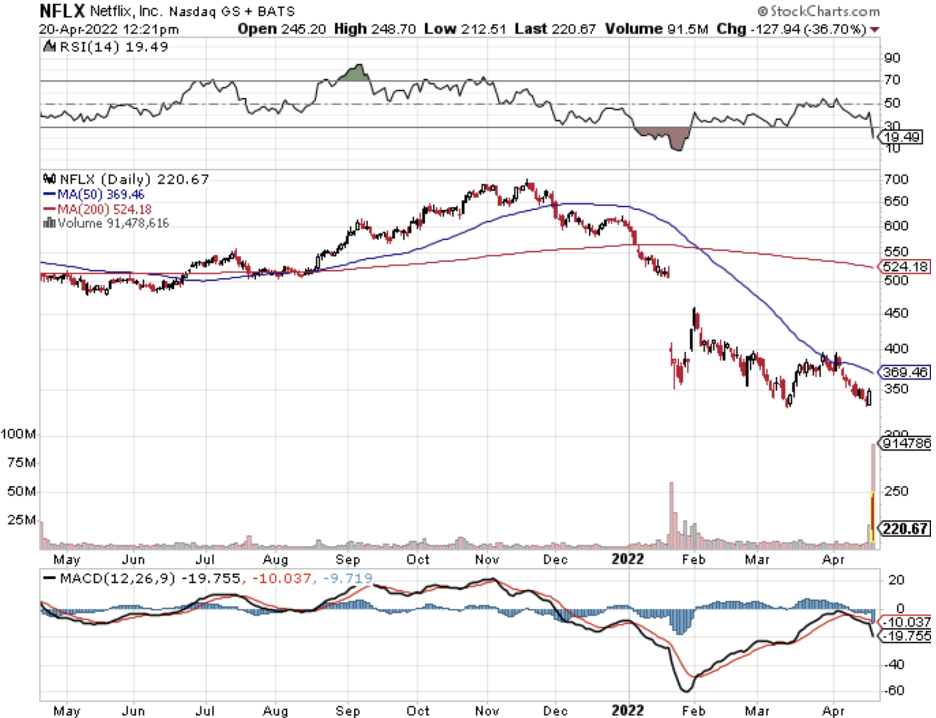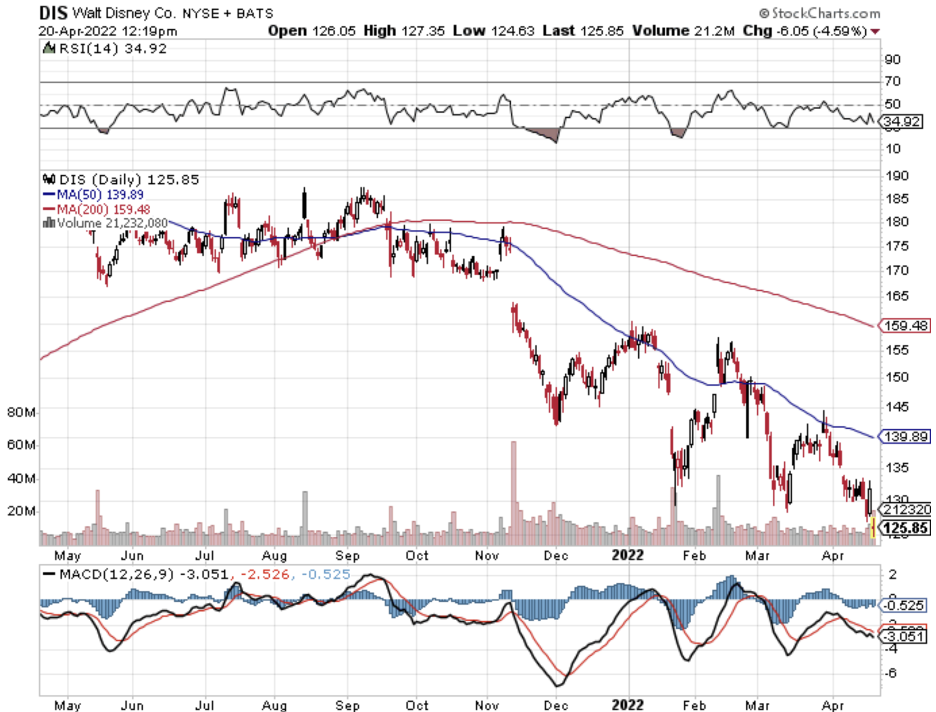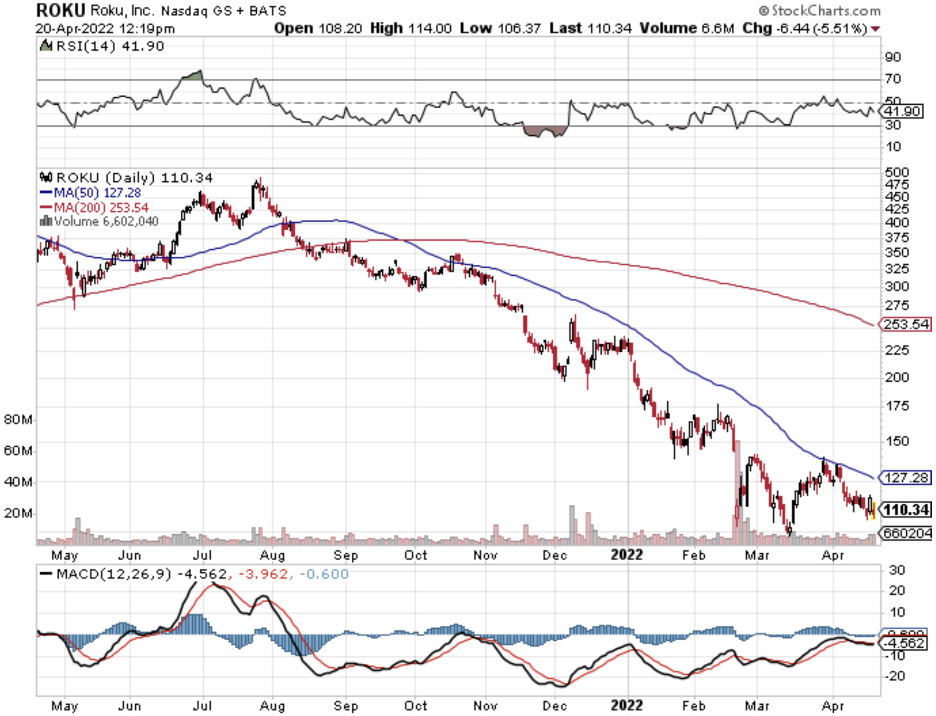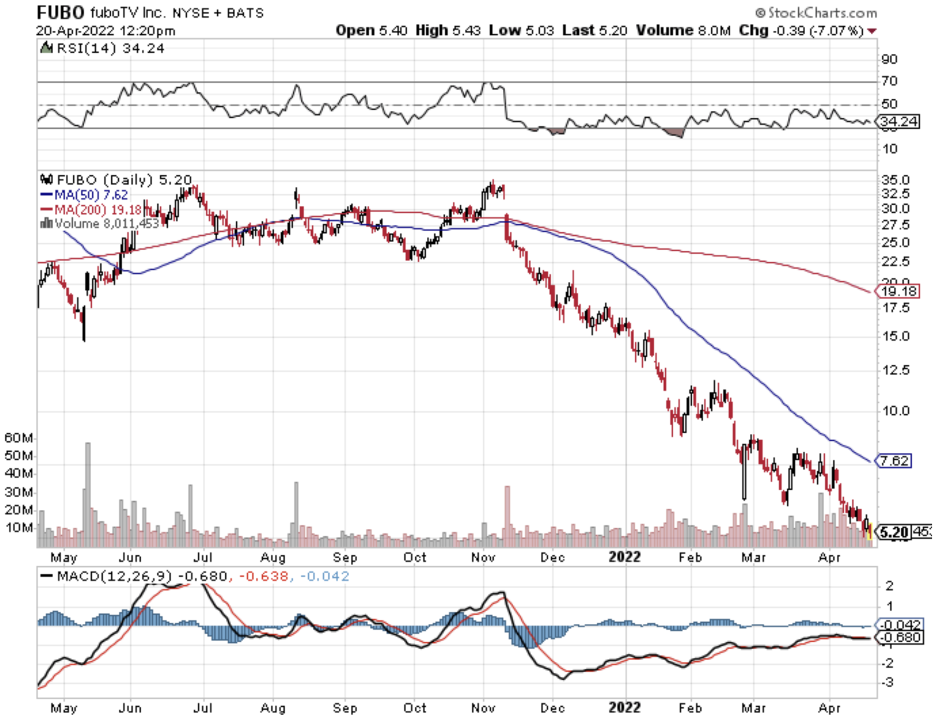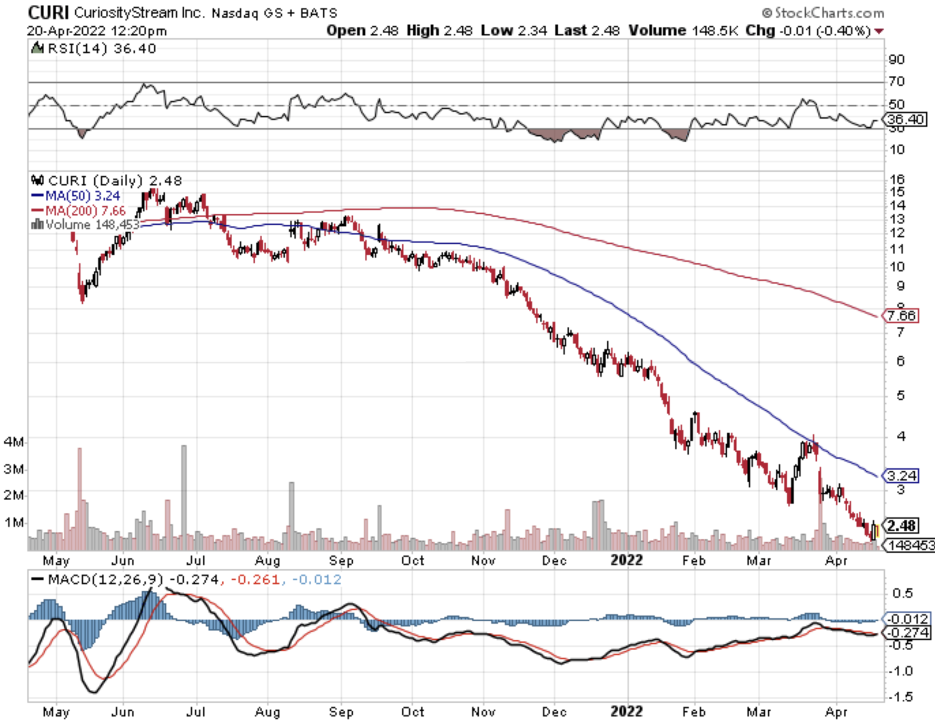Peak Eyeballs
Online streamers now have no pricing power.
Remove jacking up prices from the equation and streamers like Netflix (NFLX) and Disney (DIS) look quite mediocre and that’s what the 35% drop in NFLX shares are telling us.
NFLX Ahh factor has vanished.
It used to be that they knew they could raise prices whenever they wanted and that tool in their kit kept investors on board.
CNN+’s dismal foray into pay tv was another red flag when owner Warner Bros. Discovery (WBD) decided to pull all marketing spend because of the paltry viewing results.
There’s just too much competition out there and instead of creating more leeway, growth was pulled forward the past 2 years, and now the chickens are coming home to roost.
Shelter-at-home stocks like Peloton (PTON) and Zoom (ZM) are now surplus to requirements.
It was just not that long ago, that fresh streaming TV options launched at a frenzied pace.
With many subscription services available, streaming entertainment became ubiquitous in U.S. homes as consumers spent large quantities of time and money on streaming media.
As economies reopen following the end of the health situation, and consumers spend more time outside of their homes, there still are just other things to do like going outside.
The idea that there are still many years of streaming growth lie ahead for the streaming industry has turned out to be an utter fallacy.
These are some tech companies impacted.
- Disney (DIS)
The much-anticipated Disney+ streaming service was launched in late 2019, just in time for the health situation.
It added tens of millions of subscribers worldwide in its first year and quickly became the second-largest subscription streaming service after Netflix. Disney also owns the streaming services Hulu and ESPN+ in the U.S. but they still don’t turn a profit on many of these streaming assets yet.
It is unlikely that new content will reverse generating excessive losses.
Better Disney stick to the amusement parks.
- Roku (ROKU)
Streaming TV has been a boon for the smart TV and streaming device maker.
Roku has become the largest TV platform in the U.S., distributing content via The Roku Channel and acting as a hub for households to manage all of their streaming subscriptions.
Roku distributes its smart TV software and streaming devices at minimal cost, making money instead on advertising and by managing subscriptions.
With peak eyeballs on streaming, don’t expect any explosive growth from Roku, in fact, they could go with a whimper and wait for a buyout.
This is a warning sign for any tech company that chooses to not produce their own in-house content and relying on others to draft the narrative of future health is awfully dangerous in a zero sum game.
- fuboTV (FUBO)
Streaming service fuboTV, a relative newcomer to the streaming media industry, went public in 2020.
This small service has gained popularity as a live TV platform, and it’s a top option for those who want to watch live sporting events.
The smaller they come, the harder they fall.
Smaller streaming companies have little recourse when multiple exogenous forces impact the company.
fuboTV is nowhere near profitability and has lost close to half a billion dollars in each of the past 2 years.
Public companies are often harangued for going ex-growth the second they are tradable in New York, and this is the epitome of what I am talking about.
The stock has gone from $35 to $5 today in the past 5 months.
Don’t catch a falling knife here.
- CuriosityStream (CURI)
CURI is another newbie to the dying streaming industry.
This streaming media company focuses on documentaries and science content and was founded by Discovery’s
CURI is competing against some well-entrenched rivals in the non-fiction TV space, including Discovery and Disney’s National Geographic (available on Disney+).
The young company keeps its content creation costs relatively low since it focuses on educational material and partners with universities, but who really wants to see this type of content anyway.
This company sounds boring and naïve.
CURI’s stock price has gone from $17 to $2 in the past 5 months.
Avoid like the plague!
